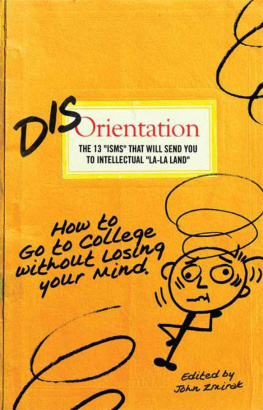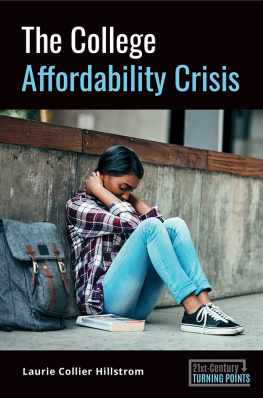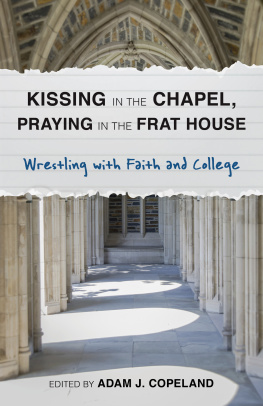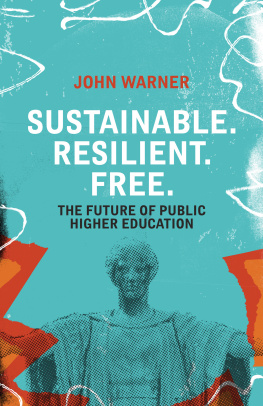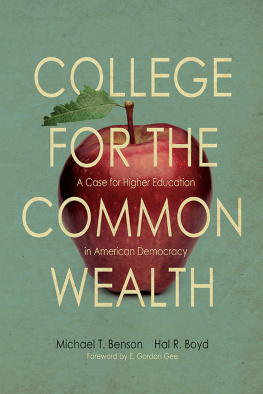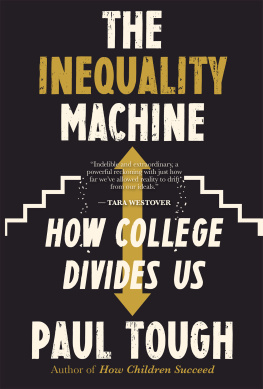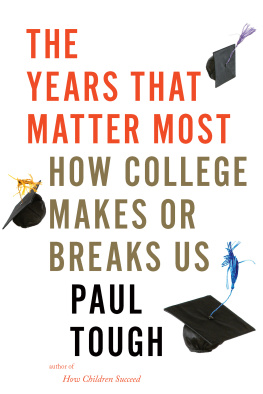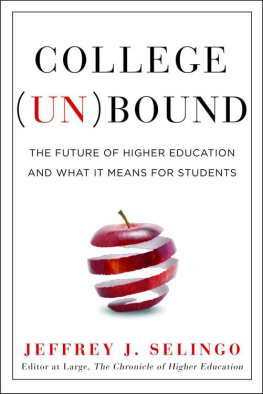


West Chester, Pennsylvania
Copyright 2010 Ascension Press. All rights reserved.
With the exception of short excerpts used in articles and critical reviews, no part of this work may be reproduced, transmitted, or stored in any form whatsoever, printed or electronic, without the prior written permission of the publisher.
Scripture verses contained herein are from the Catholic Edition of the Revised Standard Version of the Bible, copyright 1965, 1966 by the Division of Christian Education of the National Council of the Churches of Christ in the United States of America. Used by permission. All rights reserved.
Ascension Press
Post Office Box 1990
West Chester, PA 19380
Orders: 1-800-376-0520
www.AscensionPress.com
Cover design: Devin Schadt
Printed in the United States of America
10 11 12 13 14 6 5 4 3 2 1
ISBN 978-1-934217-94-8
To all those who over the centuries have toiled with neither glory nor reward passing along the works of the intellect, training young people in the liberal arts, and living the Faith of our fathers; to the monks who copied books and the sisters who taught the poor; to the scholars, artists, missionaries, and catechists; and to all honest seekers after truth.
A CKNOWLEDGMENTS
We wish to thank each of the authors, who took time out of busy, busy schedules to examine these fundamental questions. Thanks to Faye Tatum Ballard, for her insightful comments on each of the early drafts, to Thomas More College of the Liberal Arts, to Intercollegiate Studies Institute, and to Matthew Pinto and the entire team at Ascension Press and their associates, including Leigh Brindley and Erica T. Rankin, for making this book a reality.
I NTRODUCTION
A Syllabus of Errors
John Zmirak
This guide is meant as a kind of antidote to many of the books you probably will be assigned to analyze and regurgitate over the course of four years in college. Here you will find fourteen clear, digestible summaries of the ideologies you are likely to encounter in your classes across the curriculumfrom English lit to biology, from economics to womens studiesand argue about with your friends over late night cups of coffee.
Each of the ideologies listed here is compelling, intriguing and disastrously wrong. Much of the moral confusion and pointless bickering in the media comes from followers of one error (say, Scientism) facing off against the devotees of another (such as anti-Catholic fundamentalism). Or sometimes the fans of different, related heresies team upfor instance, when feminists and utilitarians cooperate to undermine the sanctity of life. Even college chaplaincies can be corrupted by these movements, for instance when they trade the Gospel for some trendy, toxic blend of Multiculturalism and Progressivism. And so on. If you drew up a Most Wanted list of the most dangerous ideas running loose today, you would find each one of them here.
None of these ideologies is completely, 100 percent wrong. If they were utter, obvious nonsense, then nobody would be taken in by them. Instead, every heresy amounts to a tiny piece of the truth, surgically removed from the rest of reality and grown in a test tube into a giant thumb, or ear, or tongue. When you try to reattach it to the body, it causes all sorts of problems because it throws everything out of balance. Thats what ideologies do, with their fierce, fanatical focus. They narrow our vision, whip up our emotions, and tempt us to throw aside common sense, faith, and finally even logic. They are like intellectual drugs, and, yes, they can be addictive. This book is meant to save you the trouble of ending up in rehab.
Each of the authors is an expert in his or her field and has written longer, more academic works on the subjects tackled here. At the end of each essay, a recommended reading list points you to still more resources on each subject, of the sort you can cite in footnotes if you need to write a paper on one of these topics. (Watch out: Many professors dont appreciate it when you blast their unexamined premises out of the water, and your grade very well might suffer.)
We hope that you will delve into these books and these argumentsespecially if you find yourself struggling with conflicts between the Faith you grew up with and the bold new ideas you will learn about in college. In fact, as you will see in each of these essays, none of these ideologies is really new; the intellectual trends that dominate most colleges arent the fruit of social progress or real scientific inquiry. Instead, they are the result of old mistakes by philosophers, propaganda slogans coined by activists, or cop-outs on the part of cowardly prelates and politicians. Like the many layers of gloppy paint that you will find in old apartments, these accumulated mistakes obscure the underlying reality, and the only way to see the truth is to strip them away. Thats what these essays dothey cut through the crud.
This pocket-sized map of intellectual landmines isnt meant to add to anyones already intimidating reading lists. You dont need to write a essay about it, and it wont be on the examalthough the topics covered here will indeed make up the bulk of what you will be thinking and writing about throughout your college career. More importantly, the questions raised in this book are going to come up again and again throughout your life when you have make basic, real-world decisions. Your dating behavior will be affected by where you stand on Relativism, Hedonism, and Feminism. Your choice of career may hinge on how much you have been influenced by Consumerism and Cynicism. How you vote will be influenced by your attitude toward Sentimentalism, Americanism, Marxism, and Multiculturalism. Life and death medical decisions regarding your parents as they age will depend on where you stand on Scientism and Utilitarianism. The state of your soul when you die may hinge on how you have reacted to Progressivism, Modernism, and Anti-Catholicism.
As the great professor Richard M. Weaver once wrote in a book of the same title, ideas have consequences. If you dont believe this, pay a visit to Iran or North Korea. Iranians and North Koreans arent a different species, but their lives might look to us like something from a creepy science fiction movie. The reason? These societies are based on deeply mistaken ideas about human nature, human rights, and the nature of God. Since these ideas arent fully true, or fully human, they dont treat people humanely. If we accept false ideologies, we will do the same thing, on a smaller scale. We will suffer, and so will the people around us, in this world and in the next.
Most of the ideologies the authors are warning you against dont present themselves as full-blown worldviews on the model of, say, Fascism or Islam. Instead, they insert themselves subtly into the unexamined assumptions people have learned to accept as obviously true. We hope that after reading these essays, you will know to be suspicious every time someone starts a sentence with one of the following phrases:
- As everybody knows
- The educated consensus is
- Of course, as everyone who isnt stuck in the Middle Ages realizes
- All decent people agree
Beginning an argument with such an appeal to popular opinion is a sure sign that someones trying to put something over on youto sell you a pack of undigested prejudice, which he probably hasnt even thought through himself. Peer pressure isnt something we outgrow in high school; in fact, it is the single most powerful force in shaping debates among professors and intellectuals. Most people dont want to be outsiders, and few faculty members wish to alienate the colleagues who will be voting on their promotions.
Next page
